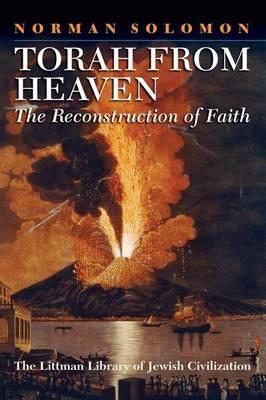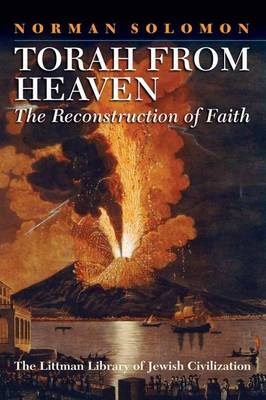
- Retrait gratuit dans votre magasin Club
- 7.000.000 titres dans notre catalogue
- Payer en toute sécurité
- Toujours un magasin près de chez vous
- Retrait gratuit dans votre magasin Club
- 7.000.0000 titres dans notre catalogue
- Payer en toute sécurité
- Toujours un magasin près de chez vous
Description
Traditional Jewish religious belief speaks of a divinely revealed, perfect text, authoritatively expounded. The question this book addresses is one with which the author has struggled all his life: in the light of historical criticism, advances in knowledge, and changing moral attitudes, is the traditional notion of divine revelation and authoritative interpretation still valid? The focus is on Judaism and the examples are mostly drawn from that tradition, but the arguments are easy to transpose to other religions. Norman Solomon's discussion will appeal to those who seek to identify with a religious community but who are troubled by the claim of divine authority made for the scriptures of that community. Ranging across several academic disciplines, it is addressed to people of all religions who find their heads and their hearts are not in accord with each other. It is accessible to a general readership interested in the relationship of scripture, interpretation, and religious authority, though scholars will find original observations and historical interpretations in many areas.
It should find a ready place in university and popular programmes in Jewish studies, general theology, and philosophy of religion.
Spécifications
Parties prenantes
- Auteur(s) :
- Editeur:
Contenu
- Nombre de pages :
- 412
- Langue:
- Anglais
- Collection :
Caractéristiques
- EAN:
- 9781906764135
- Date de parution :
- 26-01-12
- Format:
- Livre relié
- Format numérique:
- Ongenaaid / garenloos gebonden
- Dimensions :
- 157 mm x 234 mm
- Poids :
- 771 g

Les avis
Nous publions uniquement les avis qui respectent les conditions requises. Consultez nos conditions pour les avis.






